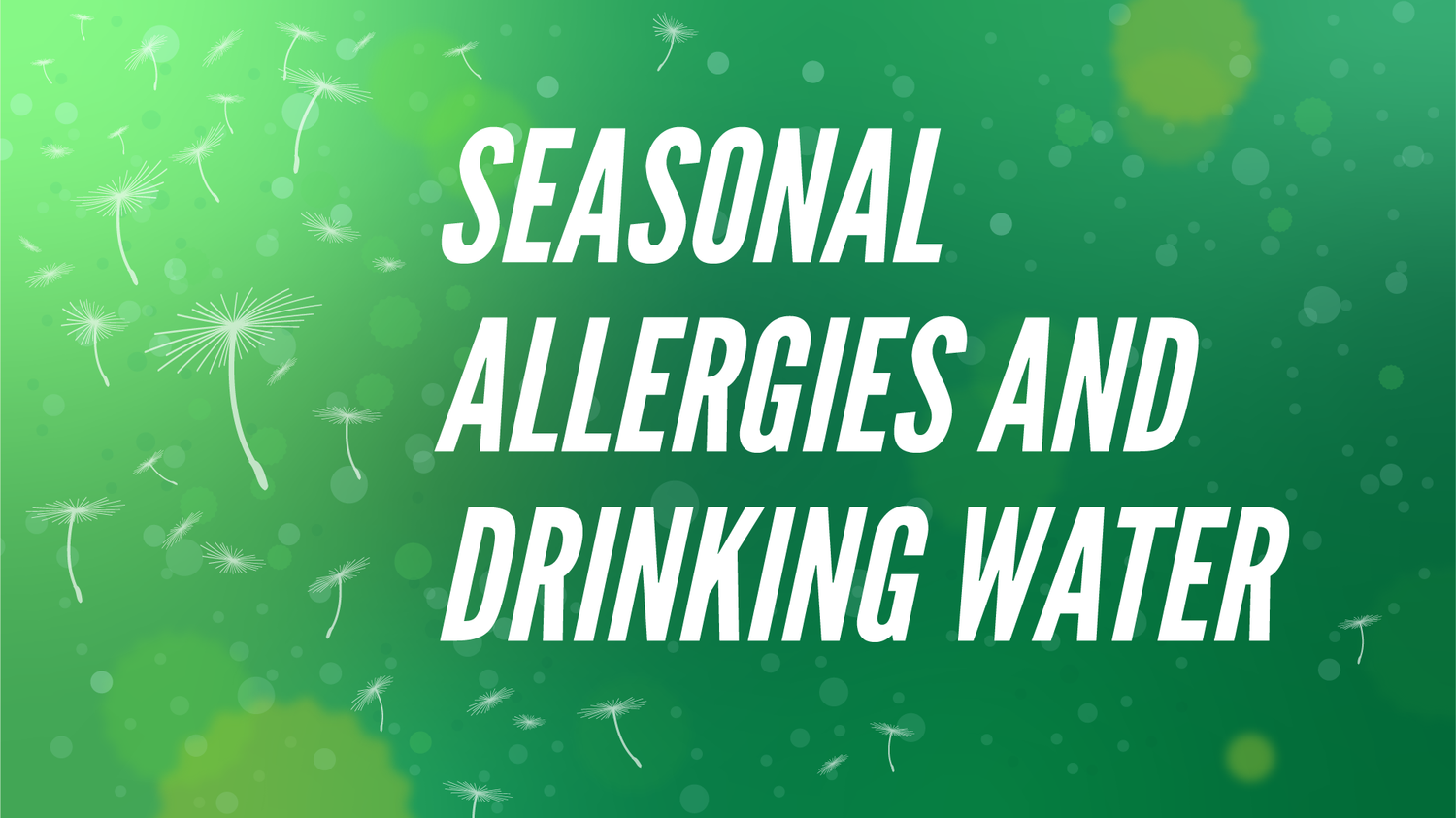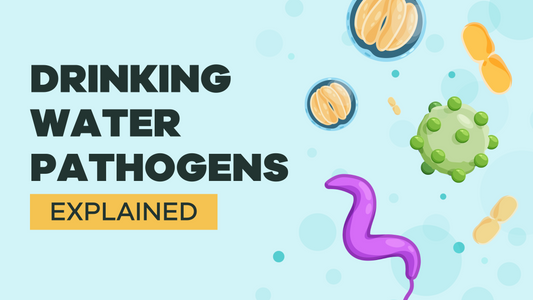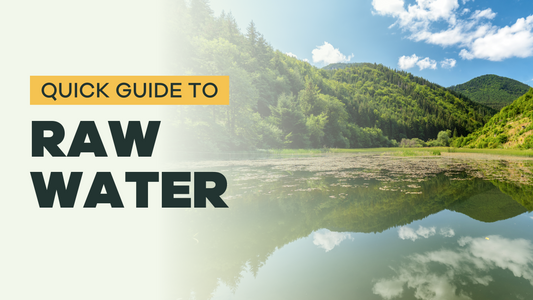
Seasonal Allergies and Drinking Water
Our blog is written by real experts— not AI. Each guide is carefully reviewed and updated based on the latest research. Plus, with no affiliate links, you can count on unbiased insights you can trust.
As winter melts into spring–blooms, blossoms, and other botanical beauties make their way back into our lives (and noses). With all of the bounty that spring has to offer, it often is accompanied by a less desirable side effect–seasonal allergies.
Allergy severity can range from mildly bothersome to severely crippling. We can all agree that no one wants to spend their spring sneezing.
Onset by a variety of causes–from environmental factors (such as pollen) to food-related allergens (such as tree nuts)–many allergies are chronic and incurable. This means that allergy management is crucial in order to avoid potentially severe bodily reactions.
There are many allergy-management options on the market, but one easy and surprising way to manage allergic reaction severity can be found at your tap. In our new guide to seasonal allergies, we’ll explain how drinking water can help manage your springtime symptoms.
What are Allergies?
Allergies occur when your body’s immune system reacts to an ordinarily harmless substance known as an allergen. These reactions-like sniffling and sneezing—are stimulated as your system produces antibodies and histamine.
Histamine is an organic nitrogenous compound that helps regulate physiological functions in the gut, as well as serves as a neurotransmitter, and perhaps most notably–as an immune response. Symptoms of elevated histamine levels causing an allergic reaction include:
While over-the-counter antihistamines are readily available, managing your hydration level is an essential step you can take to limit reaction severity.
Not only does dehydration suppress your immune system (making you more susceptible to allergens), histamine is produced at a greater rate during periods of dehydration. This is due to the fact that histamine levels rise in order to help retain water. Even though drinking water does not prevent nor treat an allergic reaction, avoiding dehydration will help maintain normal histamine levels.
Staying sufficiently hydrated will allow histamines to focus on battling allergens, rather than fighting to retain water.
How much water should you drink to stay hydrated?
The Institute of Medicine (IOM) suggests 3.7 liters and 2.7 liters are the minimum intake for food and beverages combined for men and women, respectively. For more tips and facts about hydration and, take a look at our guide here.
This brings us to our next question: With all of the different types of water on the market (from alkaline water to electrolyte-infused water), what’s the “best” water to keep you hydrated and keep allergies at bay?
In general, fancy functional waters won’t harm you--but their claims of super-hydration powers often fall flat (take a look at our Guide to Functional Water for the in-depth look at these fad water trends!) While there are exceptions, we recommend that you keep to your (tested) tap water–as it will cost your wallet and the environment far less.
For any more questions about drinking water, send us a message at support@mytapscore.com–our team of chemists, engineers, and treatment experts are always standing by!Article Sources
▾https://www.aaaai.org/conditions-and-treatments/conditions-dictionary/allergy
https://doulton.com/2018/04/25/drinking-water-allergic-reaction/
https://www.ncbi.nlm.nih.gov/pubmed/17490952
https://kidshealth.org/en/parents/histamine.html
https://www.medicalnewstoday.com/articles/322543.php
https://mytapscore.com/blogs/tips-for-taps/the-truth-about-hydration
https://mytapscore.com/blogs/tips-for-taps/what-s-the-function-of-functional-water
https://www.nap.edu/read/10925/chapter/6
https://mytapscore.com/blogs/tips-for-taps/alkaline-water-a-critical-review
https://www.thedailybeast.com/bottled-water-costs-us-2000-times-more-than-tap-is-it-worth-it
https://www.ncbi.nlm.nih.gov/pubmed/21362276
https://asthma.net/living/ask-the-experts-is-there-a-connection-between-dehydration/
https://www.consumerhealthdigest.com/water-retention/histamine.html









